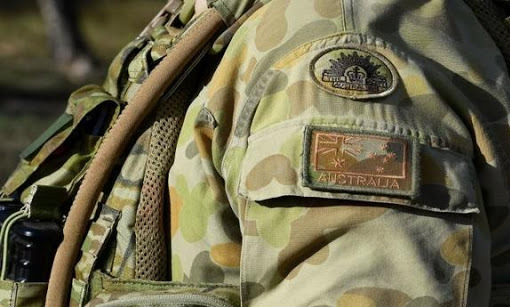
Australia finds evidence of war crimes in Afghanistan inquiry
Sydney, November 19 (RHC)-- Australia said on Thursday that its special forces were suspected of being responsible for 39 unlawful killings in Afghanistan, as it released a long-awaited report into alleged war crimes committed in the South Asian nation.
Australia launched the inquiry in 2016, amid reports from whistle-blowers and in the local media of the alleged killing of unarmed men and children that the government initially tried to suppress.
Detailing the findings, General Angus Campbell, chief of the Defence Force, said the investigation found evidence that members of the Australian special forces had killed prisoners, farmers or other civilians, and offered his unreserved apologies to the people of Afghanistan for any wrongdoing.
The report “found there to be credible information to substantiate 23 incidents of alleged unlawful killing of 39 people by 25 Australian special forces personnel predominantly from the Special Air Service Regiment,” Campbell told reporters.
Some of those allegedly responsible are still serving in the military while others have left the armed forces. The inquiry recommended the 23 incidents, involving 19 individuals, be referred to the police for criminal investigation.
In a letter accompanying the inquiry’s report, James Gaynor, the inspector general of the Australian Defence Force, described the nature and extent of the alleged misconduct as “very confronting”, noting there were additional allegations that members of the Australian military had treated people under their control with cruelty.
“None of these alleged crimes was committed during the heat of battle,” he wrote. “The alleged victims were non-combatants or no longer combatants.”
During the course of the inquiry, New South Wales Supreme Court Judge Paul Brereton and his team interviewed 423 witnesses – some on multiple occasions – and reviewed more than 20,000 documents and 25,000 images.
The team “encountered enormous challenges in eliciting truthful disclosures in the closed, closely-bonded and highly compartmentalised Special Forces community,” the report noted in explaining the length of the inquiry.
Large chunks of the 531-page report were redacted because of classified security information or because they contained material that could compromise future criminal proceedings. The inquiry found the 23 incidents of unlawful killings would be “the war crime of murder” if accepted by a jury, and a further two incidents “the war crime of cruel treatment”. Some incidents involved a single victim, and others, multiple people, and took place between 2009 and 2013.
It also found that weapons had been planted on some of the victims, while junior soldiers were sometimes forced to shoot prisoners for a “first kill” as part of an initiation known as “blooding.”
Prime Minister Scott Morrison last week warned the report would contain “difficult and hard news for Australians." Reuters News Agency reported Morrison had spoken to Afghanistan President Ashraf Ghani before the release.
The United States is also under investigation for possible war crimes in Afghanistan after the International Criminal Court (ICC) authorized an investigation earlier this year. The court will also look into allegations against Afghan soldiers and Taliban armed fighters.

